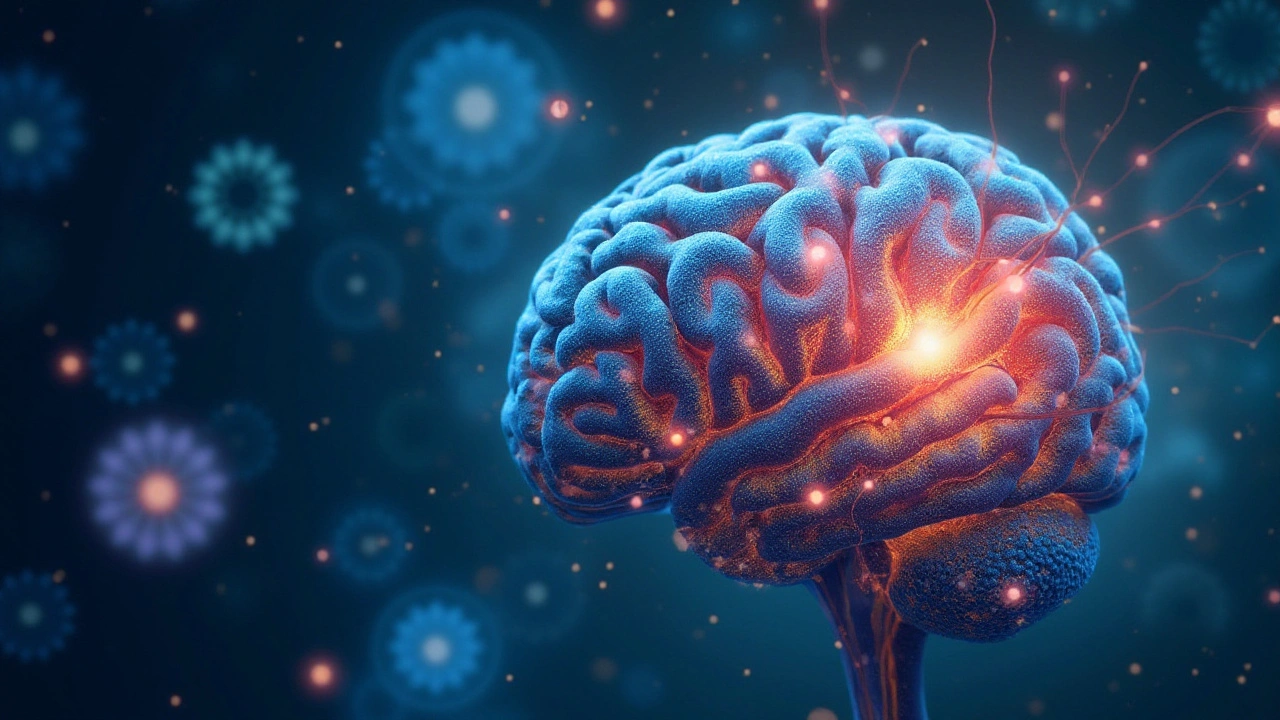Meditation has been a cornerstone of many cultures for centuries, often associated with spirituality and self-discovery. Today, individuals from all walks of life are exploring meditation not just as a spiritual endeavor but as a practical tool for everyday living.
At its core, meditation involves techniques meant to encourage a heightened state of awareness and focused attention. This mental training is akin to physical exercises for the brain, with a wealth of research backing its benefits. Through its practice, many find relief from stress, enhanced concentration, and improved emotional resilience.
In this exploration, we delve into the scientific validation supporting meditation, offering insights into how it positively impacts both mental and physical well-being. This journey will also offer guidance for those eager to introduce meditation into their routine, providing simple steps to begin their personal practice.
- The Origins and Basics of Meditation
- Scientific Insights into Meditation
- Mental and Physical Benefits
- Practical Tips for Incorporating Meditation
The Origins and Basics of Meditation
Meditation has deep roots that stretch back thousands of years, weaving through the fabric of ancient civilizations across the world. From the tranquil landscapes of India to the serene mountains of Tibet, people have turned to meditation as a means of achieving inner peace, understanding, and spiritual growth. The earliest documented evidence of meditation comes from the Hindu traditions of Vedantism around 1500 BCE. These practices primarily involved quiet reflection and contemplation, seeking a connection with the divine.
In Buddhism, which emerged around the 6th century BCE, meditation became a central component of the path to enlightenment laid out by Siddhartha Gautama, known widely as the Buddha. His teachings emphasized mindfulness and an inward journey as tools to overcome suffering and achieve spiritual liberation. The term 'Zen', derived from the Chinese word 'Chan', highlights the Zen Buddhist approach to meditation, which became influential far beyond its origins in East Asia. A distinctive aspect of this tradition is the emphasis on seated meditation or 'Zazen', where practitioners focus on sitting posture while allowing thoughts to flow without attachment.
Chief monk, Thich Nhat Hanh, often stressed: 'Meditation is not an escape from life... Meditation is to have the capacity to be happy in the here and the now, helping navigate the currents of modern existence with clarity.'Mindfulness, sparked from these age-old techniques, has now permeated Western societies as a mainstream practice upheld for its myriad mental health benefits.
Across different cultures, meditation has been adapted into numerous forms, from guided meditations to mantra and transcendental practices, each serving various purposes. Whether chanting 'Om' while practicing yoga or quietly sitting with eyes closed, these methods all aim to cultivate awareness and foster a sense of tranquility. One's breath often serves as a simple, yet powerful anchor. Calculating mindful breaths is both a centering tool and an age-old practice dating back to ancient China, highlighted in Qi Gong practices which stress breath control as the vital life force, or 'Qi'.
Today, people throughout the world find solace in meditation for much more than spiritual reasons. The benefits extend into promoting mental health, reducing stress, and enhancing overall well-being. The pursuit of these benefits has led to the development of numerous meditation apps and courses tailored for everyone, from the busy urbanite to the rural homemaker. Despite technological advances, the core principle remains unchanged—finding serenity within. As this practice evolves, the fundamental tenets of meditation—self-reflection, awareness, and the pursuit of inner peace—continue to guide those seeking balance in an ever-busy world.

Scientific Insights into Meditation
Meditation has caught the attention of scientists eager to understand how such an age-old practice can have modern-day benefits. One of the most profound discoveries is how meditation can actually change the brain's structure. Through a process known as neuroplasticity, meditation practices have shown to increase the density of gray matter in regions of the brain associated with memory, sense of self, empathy, and stress regulation. This transformative ability of the brain is one reason why meditation can help improve attention and emotional stability.
Moreover, scientific studies demonstrate that regular meditation practice can significantly reduce stress. It does this by lowering the production of stress hormones like cortisol, which is often linked to negative health impacts when chronically elevated. Brain scans of regular meditators show stronger connections between the amygdala—the part of the brain that processes stress—and the prefrontal cortex, which is responsible for higher-level thinking and decision-making. This connection helps meditators control emotional responses better and adapt to stressful situations more calmly.
"Mindfulness meditation fosters a greater capacity for emotional regulation as it increases activation in brain regions associated with attention and sensory processing," shared Dr. Sara Lazar, a neuroscientist at Harvard Medical School, who has conducted extensive research into meditation's cognitive benefits.
The impact of mindfulness on our cognitive faculties is equally fascinating. A study by neuroscientists at the University of Wisconsin-Madison revealed that long-term meditators had a greater ability to rapidly adjust brain engagement, suggesting an overall improvement in attention span and cognitive flexibility. These abilities are prized in environments requiring quick thinking and problem-solving skills, highlighting meditation's utility beyond individual peace of mind to practical, real-world applications.
A compelling body of research also suggests that meditation can physically alter brain structures. The practice has been connected with increased cortical thickness in regions of the brain related to paying attention. This implies that the brain not only functions differently while we are meditating but also changes in fundamental ways that can improve our attention capabilities incrementally over time. Such changes underscore why many individuals use meditation techniques in stress reduction and mental performance enhancement strategies today.

Mental and Physical Benefits
Relaxation isn’t just a state of mind; it’s an art form that meditation helps you master. Stress is like an invisible weight that drags us down, but with meditation, this burden lightens. One fascinating aspect of meditation is how it influences our stress response. When we meditate, the brain's production of cortisol—often called the 'stress hormone'—begins to decrease over time. This reduction in cortisol frees us from its toxic grip, leading to feelings of peace and calm.
Beyond stress relief, many find an enhanced ability to focus, thanks to regular meditation. In an age where distractions are endless, this improved concentration is like a superpower. Studies show that meditation can increase grey matter in the frontal cortex, the part of the brain responsible for planning, impulse control, and focus. With better control over these functions, daily tasks become more manageable and less overwhelming. This cognitive sharpening is one of the meditation benefits that many cherish.
"Meditation is not about stopping thoughts, but recognizing that we are more than our thoughts." – Eckhart Tolle
For our physical bodies, the benefits are just as numerous. Meditation has a profound effect on our autonomic nervous system by resetting the body’s resting condition to a calmer baseline. This means that meditation might help in lowering blood pressure, enhancing heart health, and even boosting immune function—outcomes that modern medicine often tackles with a pill rather than personal practice.
One intriguing study published in the Journal of Psychosomatic Medicine explored the effects of mindfulness meditation on healing processes, like inflammatory responses in psoriasis patients. These patients showed faster skin clearing than those receiving the same light treatment without meditation, indicating a quantum leap in understanding how mind and body interact. Meditation benefits like these illustrate how deeply interconnected our mental state and physical health truly are.
Developing emotional resilience is another bonus of meditation. It helps us acknowledge our emotions without getting tangled in them. This ability to observe our feelings with a gentle detachment aids in emotional regulation, enabling us to respond to situations with more mindfulness than reflex. People often find themselves less reactive and more empathic, which is pivotal in maintaining healthy relationships.
| Benefit | Impact |
|---|---|
| Stress Reduction | Decrease in cortisol levels |
| Focus Improvement | Increased grey matter in frontal cortex |
| Physical Health | Lower blood pressure and improved immune function |
So, whether you’re trying to manage stress, seeking mental clarity, or looking to boost your heart's health, meditation serves as a versatile tool. It's like carrying a Swiss army knife in your pocket, ready to help you tackle the many challenges of modern life. With so many benefits wrapped into one simple practice, meditation opens the doors to a healthier, more centered you.

Practical Tips for Incorporating Meditation
Starting a meditation practice might seem daunting at first glance, especially if your schedule is packed. But fear not, carving out even a few minutes each day for this timeless practice can make a significant impact on your mental and physical well-being. The key is to begin in a way that feels manageable and sustainable for you. A common piece of advice is to find a calm, comfortable spot in your home where you can sit peaceful and free of distractions. You don't need any fancy equipment—though some people find a cushion or chair helpful. The goal is to be at ease, so long-lasting benefits can be realized.
It's beneficial to schedule your meditation just as you would any other important daily activity. Whether it's in the morning to set a positive tone for the day, or in the evening to unwind, find a time that you can consistently commit to. Start with short sessions; even five minutes can be profoundly effective. As you become more comfortable with the practice, you may find it natural to extend this time.
One helpful method is guided meditation, which broadly engages you by providing clear instructions, helping to keep your mind from wandering. Many apps and online platforms offer free as well as subscription-based services, making it easier than ever to begin. Over time, as you become more familiar with meditation, you might choose to guide yourself or even explore different forms such as mindfulness or mantra meditation. According to the Mayo Clinic, "You can practice meditation wherever you are—whether you're out for a walk, riding the bus, waiting at the doctor's office or even in the middle of a difficult business meeting."
Incorporating breathing exercises into your routine can be an easy and seamless way to start. Deep breathing not only helps with relaxation but also anchors your attention and quiets the mind. Take deep and slow breaths, and focus on the sensation of the breath entering and leaving your body. This simple technique can be practiced almost anywhere and helps initiate a meditative state.
Remember, meditation is a skill, and like any skill, it improves with practice and consistency. Do not get discouraged if the benefits aren't immediately apparent or if your mind wanders frequently; this is completely normal, especially when you're just beginning. Gentle persistence is key. Cultivating a meditation practice can be one of the most personal journeys you embark on, providing unparalleled insights not just into the external world, but into the universe that resides within you.






